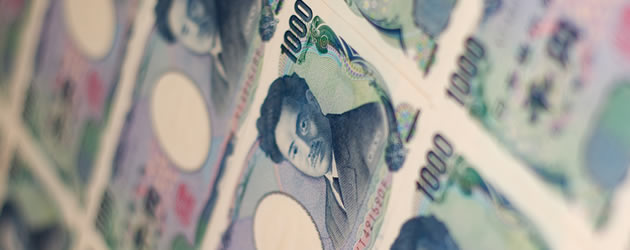
With investors turning from safe-haven assets in the wake of rallying stocks and poor US data, the Yen fell against several of its biggest rivals. The actions of the G-20, or lack thereof, also enabled the Asian currencies decline.
The Japanese Yen exchange rate was in the region of 99.1800 Yen to one US Dollar as of 10:12 am GMT
After US manufacturing figures failed to live up to expectations the odds of the Federal Reserve maintaining its present level of stimulus for the foreseeable future increased, boosting investor appetite for riskier assets.
Meanwhile, during the recent gathering of the G-20 (a collective of Finance Ministers and Central Bank chiefs) the Bank of Japan’s recent fiscal policies escaped scrutiny.
The BOJ’s decision to double its bond buying scheme has led to extensive Yen declines in recent weeks.
Given that several nations have expressed concerns regarding the risks associated with devaluing currencies through fiscal policy, some industry experts expected the Japanese central bank to be censored for its unprecedented action when the G-20 met this week, and the Yen fluctuated accordingly.
However, according to Japanese Finance Minister Taro Aso the BOJ’s actions went un-criticised during the meeting.
Although the G-20 is expected to reaffirm its commitment to avoiding currency devaluation, Aso stated Japan had explained that its central bank had taken steps to stabilise prices, and that other nations appreciated the necessity of its actions.
Haruhiko Kuroda, who recently took over as head of the BOJ, also asserted: ‘We aren’t intending to weaken the currency at all, [the easing] is for a domestic policy goal to achieve the 2 per cent inflation target at the earliest possible time.’
With the Yens devaluation unopposed, the Asian currency adopted a bearish relationship with its peers, declining against several of its most traded rivals and notably weakening to 99.18 against the US Dollar.
However, while the G-20 appears unconcerned by the Yen’s fall, the South Korean Finance Minister has expressed fears that it could put his nation’s economy at serious risk by damaging export competitiveness.

Comments are closed.